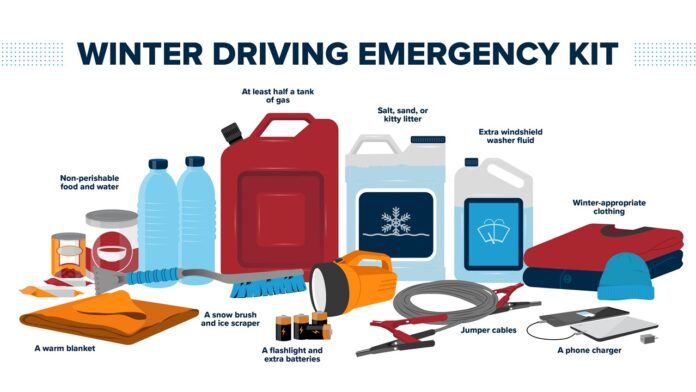Protect your life and keep safe on the road in snow – The Royal Society for the Prevention of Accidents
As snow falls across most of the UK, The Royal Society for the Prevention of Accidents has issued road safety advice to help keep people safe on the road.
The Royal Society for the Prevention of Accidents (RoSPA), that has worked for more than 100 years to help people recognise and reduce their risk of accidents, at home, on the road, at work and in leisure, say that poor visibility, slippery snow and water-logged roads can all heighten the risk of a tragic car collision.
Advising on how to keep safe on the road during the snow, Becky Guy, Road Safety Manager at the Royal Society for the Prevention of Accidents, said:
“Snowy conditions can pose a real challenge for drivers so it’s worth knowing how to prepare yourself so your journey can be as smooth as possible. Before you set off, check the weather conditions to ensure you’re not caught out, and don’t forget to wipe off snow from the top and windows of your car. This will avoid snow falling onto your windscreen while driving and impacting your line of sight. In very bad conditions, avoid driving completely, unless you absolutely have to make the journey and driving is the only option.
“It’s also a good idea to leave more time than usual for your journey, and to check your tyres, screenwash and fuel levels before you set off. If your journey is essential, packing some warm clothing and blankets can ensure you don’t get overly cold if you do break down – and even a pair of sunglasses can stand you in good stead in case the sun comes out and reflects on the road ahead.
“If you can, try and move off in second gear and change to a higher gear as soon as possible once the car is moving. Ensure you accelerate gently and smoothly, using low revs. Ideally, stay in a steady gear and leave as much room in front of you as possible so you can maintain a constant speed – and don’t forget that stopping distance can be increased up to 10 times in snowy weather.”
The Royal Society for the Prevention of Accidents has also shared its top winter driving tips to help keep drivers and riders safe:
Before your journey
- Plan your journey, checking the traffic news and allowing extra time
- If it has been snowing, be sure to remove snow from the top of your car so that it does not slide down and obstruct your view when driving
- Check fuel or charge levels before you set off to allow for unexpected delays
- If you drive an automatic car, check the handbook to see if there’s a winter driving mode setting
- Assess whether your journey is essential, and speak to your employer about whether they have a winter driving policy
Driving on winter roads
- Pull off in second gear, going gently on the clutch to avoid wheel-spin
- Leave plenty of room between you and other road users, applying your brakes gradually and in good time
- When driving uphill, check the road is clear and try to avoid stopping part way up to prevent you from rolling backwards
- When driving downhill, keep it slow and use a low gear
- Remember that braking distance can increase up to double in wet weather and by 10 times in icy weather
Reduce the risk
- Underpin each day with a risk assessment. A safe vehicle, safe journey, and safe and healthy drivers save lives.
- Reduce the risk by not making the journey when the weather is particularly bad. Reducing the risk reduces the potential for crashing and reduces the risk to emergency responders within a post-crash situation.
- Businesses have a role to play at any time of year embedding the outcomes from risk assessments into daily practice; this exchange of knowledge and skills is life-enhancing.
Pack an emergency kit
When extreme weather is possible, keep an emergency kit in your car, especially if you’re going on a long journey. If this seems unnecessary, take a moment to imagine yourself stranded in your car overnight, due to a snow storm or floods. How would you stay warm? What would you eat and drink?
If you must drive in these conditions, we recommend that you carry:
· Tow rope
· A shovel
· Wellington boots
· A hazard warning triangle
· De-icing equipment
· First aid kit (in good order)
· A working torch
· A car blanket
· Warm clothes
· Emergency Rations (including hot soft drink in a flask)
· Mobile Phone (fully charged)
Help keep news FREE for our readers
Supporting your local community newspaper/online news outlet is crucial now more than ever. If you believe in independent journalism, then consider making a valuable contribution by making a one-time or monthly donation. We operate in rural areas where providing unbiased news can be challenging. Read More About Supporting The West Wales Chronicle


























